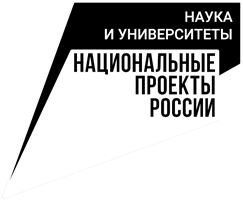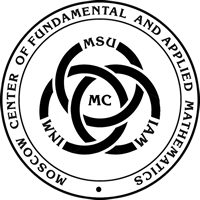PROGRAM
11:00 (GMT+3)
| Alexander Pechen | Steklov Mathematical Institute of RAS |
|
Bio: Alexander Pechen is a Professor of the Russian Academy of Sciences. He is the head of the Department of Mathematical Methods for Quantum Technologies at Steklov Mathematical Institute of the Russian Academy of Sciences. He graduated from the Physical Department of Moscow State University in 2001. He obtained Ph.D. degree in Mathematical Physics from Steklov Mathematical Institute in 2004. From 2005 to 2010, he worked at Princeton University. Alexander Pechen is a laureate of the Blavatnik Award for Young Scientists (USA, 2009), and the Award of the Moscow Government for Young Scientists in Mathematics, Mechanics, and Informatics for "outstanding results in the theory of quantum control" (2013). His research interests include diverse topics in mathematics of quantum technologies, dynamics and control of quantum systems. |
|
Some topics in quantum control.
Quantum control, that is control of individual quantum systems, attracts now high attention both due to fundamental interest and various existing and prospective applications in quantum technologies. In practical applications, controlled systems typically interact with the external environment, so that they are open quantum systems. We will discuss incoherent control of open quantum systems which uses spectral density of the environment as a tool to manipulate the system's dynamics, including a recent analysis of controllability and finding of unreachable sets of states for a qubit interacting with the environment. The controllability of controlled system is the first main question which should be answered. The next question is how difficult or easy to find optimal controls. This question is related to the analysis of quantum control landscapes. We will discuss various results on the analysis of quantum control landscapes, including a recent finding of trap-free behavior for single qubit phase-shift gate generation. In the context of gradient optimization for quantum technologies, we will discuss a convenient parametrization of quantum channels by points of the complex Stiefel manifold. Another topic is the control by measurements, including by back-action of non-selective measurements and feedback control, with possible applications to energy transfer in quantum photosynthesis.
12:00 (GMT+3)
| Xu Zhang | Sichuan University |
|
Bio: Xu Zhang is a professor at the School of Mathematics, Sichuan University, Chengdu, China. He was an invited speaker at ICM (Control Theory & Optimization Section, 2010). He is/was the editor in chief/corresponding editor/associate editor for several journals including Mathematical Control and Related Fields, ESAIM: Control, Optimisation and Calculus of Variations, SIAM Journal on Control and Optimization, Annual Reviews in Control, etc. His research interests include mathematical control theory, related partial differential equations and stochastic analysis. |
|
On stochastic PDE control.
In this talk, I will give a short introduction to control theory for stochastic distributed parameter systems (governed by stochastic differential equations in infinite dimensions, typically by stochastic PDEs). I will explain the new phenomena and difficulties in the study of controllability and optimal control problems for these sorts of equations. In particular, I will show by some examples that both the formulation of corresponding stochastic control problems and the tools to solve them may differ considerably from their deterministic/finite-dimensional counterparts, and one has to develop new methods, say, the stochastic transposition method introduced in our previous works, to solve some problems in this field.
The meeting will be held in the form of a webinar on the Zoom platform.
Pre-registration for the event is not required.
To join Zoom meeting(You can join in the meeting without a phone number):
https://us02web.zoom.us/j/89341873190?pwd=MGRCT1Z2Q1dieExxK09TZlNvWWdmZz09
Meeting ID : 893 4187 3190
Passcode:678890

